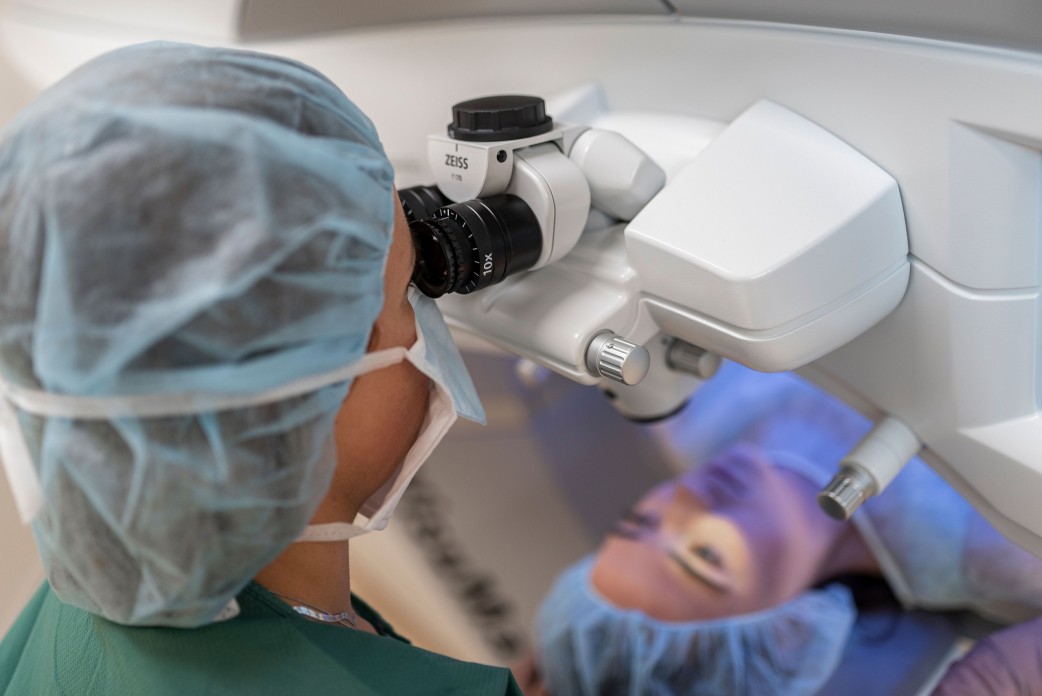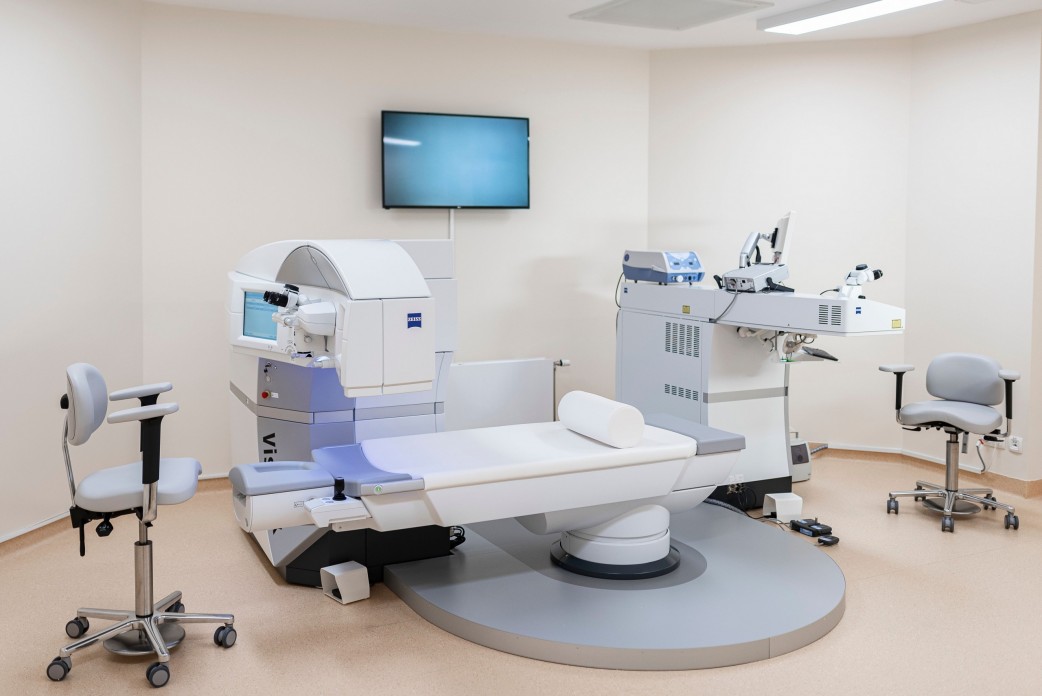To find out about the most suitable vision correction option, register for a visit, or find out other important information, leave your contacts, and we will contact you as soon as possible.
Laser correction
Laser vision correction-
- Technically the most advanced type of vision correction
- Has virtually no medical indications
- A cosmetic procedure that helps to improve the quality of vision and life
The hardware, software availability, ability to interpret and analyze the data available are crucial to laser vision correction.
Advanced laser equipment corrects vision within seconds, thus minimizing the potential risks associated with surgery.
The latest generation laser equipment Carl Zeiss “Visumax” and “MEL 90” are used in the clinic, in a combination of which it is possible to perform four types of laser vision correction procedures.
Laser vision correction techniques
There are some basic techniques and their modifications for laser vision correction, the proper suitability of which is determined by the eye doctor in collaboration with the patient. The most common laser vision correction methods are:
Is laser vision correction suitable for me?
Vision correction with a laser CAN be done if: |
|
Vision correction with laser CANNOT be done if: |
|

Alternative vision correction techniques
Suppose laser vision correction is not right for you. You want to find out all the available vision correction options before making a final decision. In that case, there are several alternative options WITHOUT the laser:
Коррекция зрения с помощью линз

- EVO Visian ICL is an eye-implantable lens inserted into the eye between the iris (the coloured part of the eye) and the eye's natural lens. The lens is made of Collamer, which is a biocompatible material and can provide excellent visual quality due to the collagen contained in it.
- Multifocal intraocular lens - instead of the eye's natural lens, a clear artificial lens with several focal points is implanted in the eye, providing the patient with clear vision at different viewing distances. This method is more commonly used in patients with cataracts or high-grade hypertrophy, or presbyopia. Still, it can also be performed in young people for whom other vision correction surgery is not appropriate.
Vision correction with glasses and contact lenses


Another alternative is to use existing vision correction aids - glasses or contact lenses.
In addition to the possibility of correcting the vision provided by spectacles or contact lenses, the daily inconveniences caused by wearing spectacles or wearing contact lenses must be weighed:
- costs necessary for the purchase of new aids;
- proper care and mandatory hygiene, especially when using contact lenses;
- as well as active lifestyle restrictions faced by spectacle and contact lens wearers.
Vision correction with night lenses

With night lenses or corneal refractive therapy, it is possible to change the cornea's shape during sleep, reducing the visual disturbances caused by myopia during the day.
At night, the lenses help the eye take the necessary corneal shape so that the lens wearer can see without glasses or contact lenses during the day. In the morning, the lenses are removed, and the visual acuity remains stable throughout the day.
Before deciding on laser vision correction:
- Make sure that you have contact details on how and who to contact after the procedure;
- Make sure that the different names for laser vision correction are varieties of methods or service kit names in the clinic;
- Make sure you that are aware of other alternative vision correction methods;
- Make sure that you have received answers to all the questions that may concern you;
- Remember that only a professional can advise and recommend the most appropriate type of vision correction.
Make a thought-out and not swift decision!




